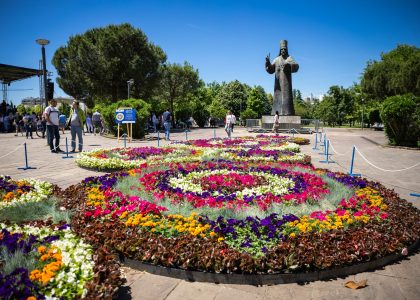We need more police officers
“It is much more significant for us, because after the analysis of this project, for the first time, we have an overview in the border police of what we need in terms of personnel, equipment and infrastructure at border crossings. And how much money it costs.”
Slavko Vojinovic has been in the police for over two decades, mostly in management positions. One beautiful, but also instructive memory for Slavko, is the project “Support for the adoption of the Schengen acquis in the area of border control”, which is being implemented by the Ministry of Interior of Montenegro in cooperation with the police forces and the interior ministries of Slovenia and Austria. With his colleagues from the European Union, during the period from February 2015 to July 2016, Slavko and other officials from the Ministry of Internal Affairs have been working on the preparation of an action plan for Schengen, development and improvement of the capacity of the Ministry of Internal Affairs and the police, and implementation of the Schengen acquis.
“It is much more significant for us, because after the analysis of this project, for the first time, we have an overview in the border police of what we need in terms of personnel, equipment and infrastructure at border crossings. And how much money it costs,” explains Slavko Vojinovic, the chief inspector for border control.
Joining the Schengen area is certainly the most difficult part of Chapter 24. Each state is required to submit during the negotiations a detailed plan of measures to be taken for the purpose of achieving better conditions for entry into Schengen.
“The state’s aim, after joining the EU, is to be in the Schengen area as soon as possible after full inclusion. It would mean achieving the citizens’ right to freedom of movement after the abolition of the state border on the internal borders,” says Vojinovic.
In addition to the preparation of the plan, it is necessary to provide funding for the implementation of what is planned and the preparation for and implementation of all the measures, such as, for example, hiring and training new staff, building adequate infrastructure and information systems development.
“By analysing the necessary staff within the Schengen Action Plan, the need to increase the number of police officers in the Department of Border Police up to 506 can be seen. The reason for increasing the number of officers is that we need to apply Schengen standards and practices in this area,” says Vojinovic.
It is recommended that the training of 75% of staff must be completed before joining the EU. How many officers will be on the border control depends on the category of the border crossing.
“For Category I border crossings the required number of staff is between 36 and 60, for Category II the required number of staff is between 24 and 36, and for Category III it is 12,” says Vojinovic.
![]()
The project, according to Vojinovic, was very significant for officers in the police and the Ministry of Interior of Montenegro. During 2015, border police officers underwent 124 different training sessions, involving 1,400 officers.
“This twinning project helped us in the training of border police, in collaboration with colleagues from the Border Police of Slovenia and colleagues from the Ministry of Interior of Austria we had training sessions on topic of combating the smuggling of motor vehicles for 18 of our officers,” says Vojinovic.
The results of the projects are already visible. In addition to training and workshops, the police and interior ministry officials had the opportunity to test their skills at the border, where they found smuggled cars and forged documents. During one part of the project participants gained knowledge about the issue of document security, which will later be pass on to other colleagues.


